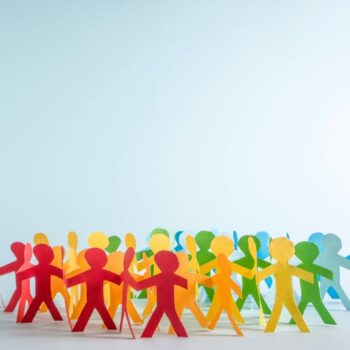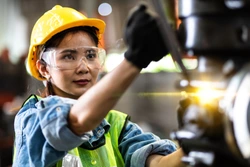Community Action for Refugees and Asylum Seekers (CARAS) is a community outreach charity based in Tooting, South–West London. They support people from refugee and asylum-seeking backgrounds.
Their vision is to ensure those who have sought refuge in the UK are welcomed, valued, and supported so they can flourish within the community.[1]
This case study explores the integration of relational working into the youth programmes delivered by CARAS to create safe and supportive environments.
How does CARAS Support Young People?
CARAS posits that people of refugee background are marginalised in the UK and face a complex range of barriers that prevent access to rights, entitlements, opportunities, and a good quality of life.[2]
According to CARAS, these barriers can and must be addressed comprehensively through education, advocacy, and campaign work for social change.
CARAS’ activities prioritise those who are most likely to have difficulty accessing services; unaccompanied asylum-seeking children.
The majority of CARAS service users are under the age of 18, with over 200 young people joining their various groups and youth programmes in 2020.[2]

The youth programmes provide social activities and sports clubs, including:
- Art sessions
- Youth clubs
- Gardening groups
- Day trips
- Football
- Running
- Cycling
- Swimming
CARAS also support young people in accessing sessions with partner organisations offering a wider variety of sports such as boxing, surfing, and cricket.
Young people are also offered educational support either as part of large, discursive study groups covering a variety of topics, or a specific computer class. Other services CARAS partner with include housing, immigration, and health.
The Successes of CARAS’ Youth Programmes
Of the 17 or younger age range, the participants in the youth programmes have said they’ve grown in confidence, been helped to access the services they need, and made long-lasting friendships.

Eleanor Brown, Managing Director at CARAS explained the positive responses are a result of the core CARAS values being instilled across all their teams.
These are:
Kindness
CARAS aims to nurture all who are part of their community, helping everyone to develop their skills, talents, and interests.
Justice
CARAS strives for social justice following a rights-based approach in all their work, and challenging instances when rights are not upheld in wider society.
Empowerment
Working with the people they support, CARAS recognises their skills and strengths and strive together for better outcomes.
‘With’ not ‘For’
At the heart of everything they do, CARAS aims to have the voices, opinions, experiences, and needs of its beneficiaries guiding every decision.
Some testimonials from participants past and present emphasise the people-centred approach CARAS takes.
“When I talk to people [at CARAS] I feel good inside; it gives an emotional release, so there is a big impact.”[1]
“[One CARAS staff member] asked me a lot of very important questions for me. Before, nobody asked me those questions… CARAS will help you: you feel like you can trust them, and it is better now when you listen to them.”[1]
“You say you have a problem: talk to them and they will help you. I feel comfortable; I feel better. I told CARAS every problem.”[1]
The Importance of Relational Working
CARAS recognises the transformative power of building supportive relationships and has embedded clear methods of relational working in all of their practices.
Eleanor believes that creating an environment in which people are valued, respected, and encouraged to participate at whatever level they are able is the basis of a strong community.
CARAS groups are relaxed and allow people the time they need to settle and build friendships which allow them to grow in confidence, contribute ideas, share their worries and ask for support when necessary.
Aside from group sessions, there are also one-to-one intensive support sessions for people in times of crisis or transition, during which the individual and team members work together to build confidence and skills.
Relational work is a method that has largely fallen out of statutory social work because of the demands it places on time. However,
CARAS believe that it is extremely valuable; it is the strength of these supportive relationships which has allowed them to work intensively and successfully with so many people who are wary of other services.
Eleanor emphasised that CARAS recognise friends, family, teachers, social groups and other significant, stable relationships all have a positive contribution to make in working through an identified difficulty with someone.
“We operate within a culture of belief and trust, aiming to support people to achieve their goals.”[1]
CARAS are continuing their work and are currently supporting more than 100 people from Afghanistan, they hope to welcome more people fleeing the Taliban in the coming months.
[1]Brown, Eleanor. 2021. Managing Director, CARAS. Embedding Relational Working into Youth Programmes to Create Safe and Supportive Environments.
[2]CARAS.org.uk. 2021. Youth Programmes.
[3]CARAS.org.uk. 2021. How we work.
Register FREE to access 2 more articles
We hope you’ve enjoyed your first article on GE Insights. To access 2 more articles for free, register now to join the Government Events community.
(Use discount code CPWR50)




